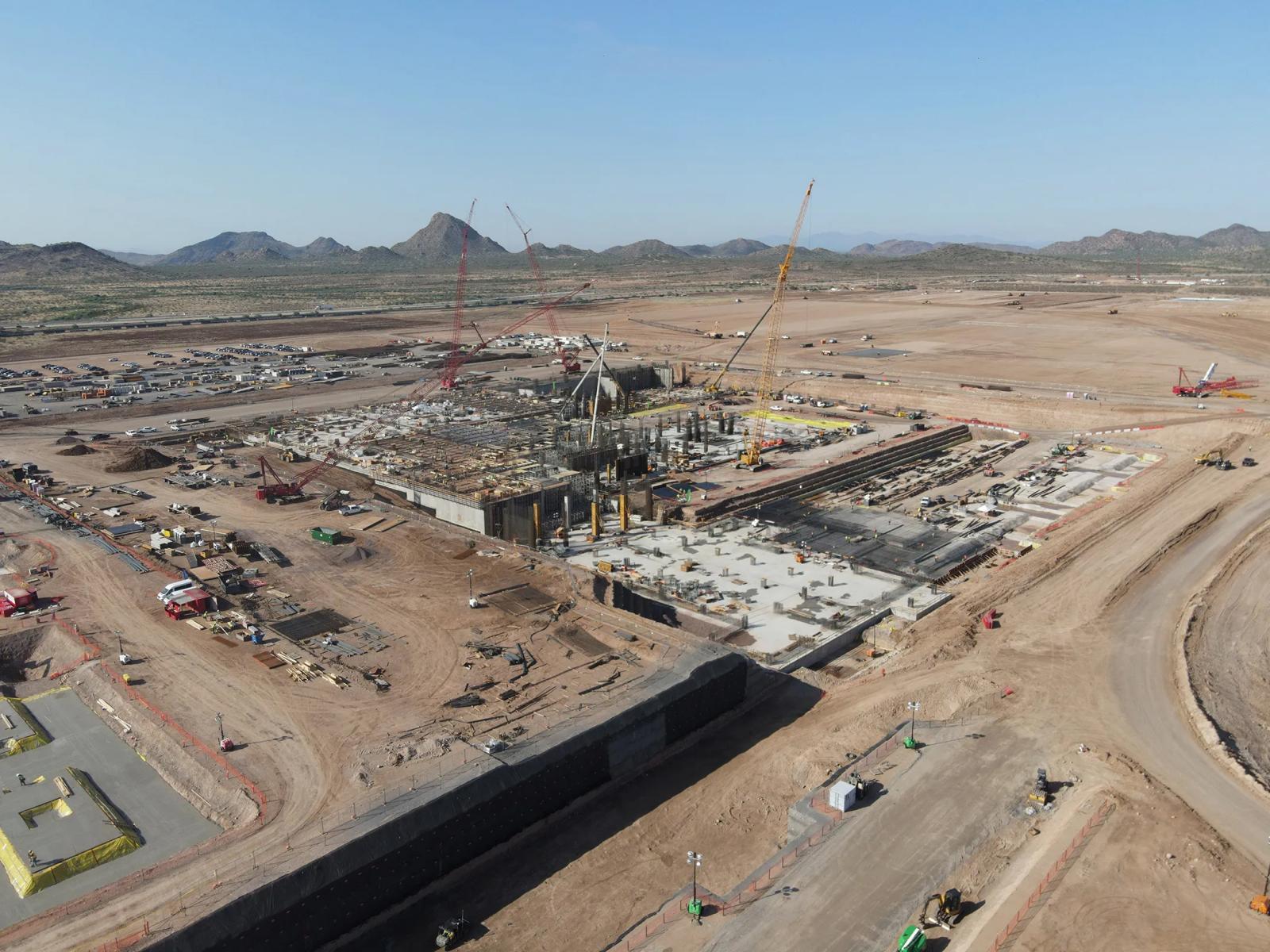TSMC (Taiwan Integrated Circuit Manufacturing Co., Ltd.) chairman, Liu Deyin, has announced that the company's Arizona plant construction plan is facing delays due to a skilled worker shortage. As a result, mass production of 4-nanometer chips has been postponed until 2025, a year later than previously expected.
TSMC is entering a critical stage of processing and installing advanced and specialized equipment for semiconductor-grade facilities. However, the company is encountering challenges in finding skilled workers with the necessary installation expertise. Plans are underway to send experienced technicians from Taiwan to train local workers, but production of N4 process technology is still expected to be delayed until 2025.

Initially, TSMC aimed to begin producing 4-nanometer chips at their first Arizona plant in 2024, investing $40 billion in the project. The factory, backed by the White House and the Biden administration, is part of a larger initiative geared toward making the United States a hub for advanced chip manufacturing once again.
In response to TSMC's delay, White House spokesperson Olivia Dalton asserted that the labor provisions in the "Chip and Science Act" would help ensure a sufficient labor force.
TSMC is also exploring ways to maximize subsidies and tax credits, given the significantly higher costs of operating in the US compared to Taiwan. The company recently reported a decrease in revenue and net profit for Q2 2023 compared to the previous year.
Despite facing challenges, TSMC continues to work closely with partners like AMD and Nvidia. AMD CEO Su Zifeng cited artificial intelligence (AI) as a crucial growth driver in the coming years and emphasized ongoing collaboration with TSMC on next-generation products.
As AI orders have surged in recent months, TSMC is expected to see increased demand in the final quarter of 2023. However, weaker demand for PCs, Android smartphones, and other consumer electronics has impacted the company's revenue this year.
Recommended related articles:
TSMC plans to upgrade Kaohsiung plant to 2nm process to meet artificial intelligence needs

